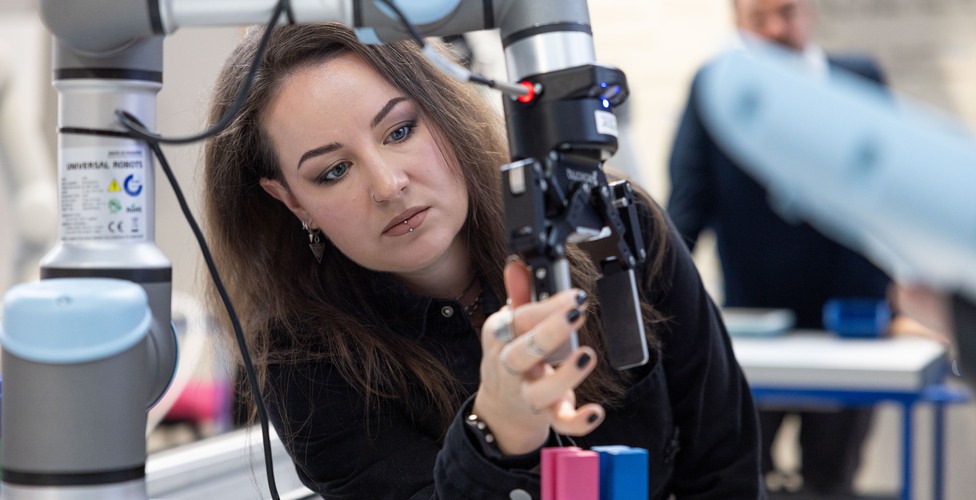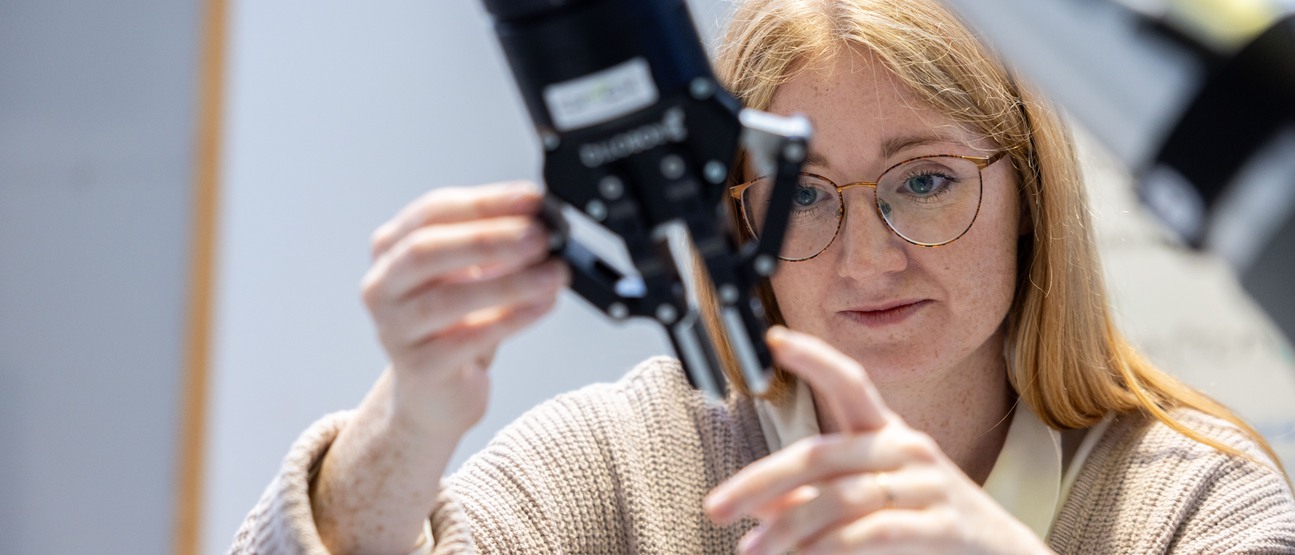
The purpose of KOMPARO is to enhance understanding of how robotization, specifically in the form of human-robot collaboration (HRC), affects operators’ professional competence and sense of control at work, as well as how collaborative robots should be designed to support operators’ own competence development.

The project focuses on workplaces within the Swedish manufacturing industry and will deliver practical and applicable guidelines for designing HRC, with an emphasis on creating a good working environment in terms of operators’ competence development and sense of control at work.
Collaborative robotic
Robots have garnered significant media attention over the past several years, and with recent advancements in generative artificial intelligence, they have become even more prominent. Collaborative robotic are already present in an increasing number of workplaces in Sweden. These workstations often involve close physical interaction between human and robot, with effects on work environment and safety protocols.
These changes require new perspectives where the robot is no longer an autonomous production unit, but a co-producer together with the human workforce.
Design of Digital Work Instructions
A handbook for the design of digital work instructions and human-robot collaboration has been developed within the project, intended to provide support for the design of workstations in industrial settings. The tool is based on research and practical experience and compiles practically applicable knowledge about human cognitive abilities and limitations, relevant for creating clear and effective instructions suited to different work situations.
To the Handbook on Designing Digital Work Instructions (Swedish)
In collaboration with Volvo and Scania
KOMPARO will, in collaboration with Volvo Group Trucks Operations and Scania, investigate both positive and negative effects of HRC on operators’ professional expertise and their sense of control at work.
The findings from KOMPARO may, for instance, address to what extent the robot is perceived as a tool controlled by the operator, a colleague the operator collaborates with, or an autonomous machine supervised by the operator.
Through the design of the workstation, operators’ experience of the collaboration can be influenced, which in turn is expected to have significant effects on their sense of control and professional competence.



